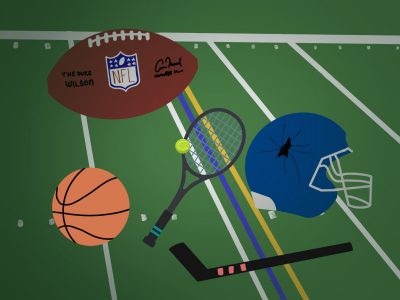Arizona Cardinals defensive lineman J.J. Watt made waves when he tweeted that this past Thursday, his heart was resuscitated, and a mere three days later, he was ready to get back on the field for Sunday’s game.
Cardiac arrest is no head cold to be remedied with chicken noodle soup and a good night’s rest. The effects of cardiac arrest survival are plentiful, ranging from physical outcomes such as brain injury to physiological symptoms such as PTSD and depression. Healing from such an extensive stress on the body can’t even begin until at least a week after the original arrest took place.
With that said, why did Watt make the decision to go out and play? Especially considering much of the response to his announcement were concerned fans, expressing a confusion at such self-destructive determination.
While athletes are more in-tune with their bodies than the average person, and therefore should be trusted to set their limits, the power dynamics revolving around such a decision make it impossible to prioritize their health.
When playing for an NFL team, the pressure you face comes at you from all sides. From fans to coaches, to the league itself, it’s hard to find anyone with your best interests at heart. It can be easy to take the option that associates you with strength — who wouldn’t want to be known for their exaggerated persistence, especially when setting boundaries is frowned upon.

During the 2021 Summer Olympics Simone Biles withdrew from the team final due to a case of the twisties, which the AP news describes as “the sudden inability for a gymnast to make the requisite spins — or sometimes any spins — for a particular maneuver.”
Biles was met with mostly positive feedback, but many disparaged her decision, upset that her withdrawal might cost the U.S. a gold medal.
This is the fine line an athlete walks. While Watt faced concerned fans, who were sure he was pushing himself too hard, Biles was told to suck it up and work through it for the good of the team. You’re either obsessed or selfish.
While the NFL claims to be working to ensure the health of their athletes are of the utmost priority, continued action taken by teams across the league tell otherwise, and point to a disturbing power dynamic which makes it hard to distinguish between a player’s genuine decision and the choice they’re pressured into making.
Tua Tagovailoa, quarterback for the Miami Dolphins, experienced a concussion while playing a game on Sept. 25. Following an accession of the severity of the injury, he was thrown back into play. Many expressed concern when he didn’t seem to be able to walk straight, but Tagovailoa’s coach dismissed this as a separate issue, unrelated to the concussion.
The injury, already dangerous enough, worsened four days later when he was given the okay to play again. Tagovailoa experienced a second hit, which may have resulted in an end to his freshly minted career.
The COVID-19 pandemic has encouraged everybody to be more aware of their physical health. Where once taking a sick day was seen as a sign of laziness, the forced isolation many of us endured has offered an alternate approach to recovery. Now, arguably, calling out when necessary, especially with the advent of virtual meetings, is understood by bosses and employees alike.
However, when your physical body plays a key role in the job you perform — and makes you millions of dollars while doing it — this progressive outlook is thrown out the window.
Though all football players sign up for the sport knowing the risks involved, the overt lack of care NFL team owners and coaches display for their players is beyond concerning.
Just because injury is a part of the job doesn’t mean precautions can’t be taken to ensure conditions aren’t worsened. But when a player is seen as no more than a willing and ready body, prepped to make all concerned a pretty penny, those safeguards become nonexistent.
Football players and athletes in general need doctors and coaches who are truly on their side. No amount of money or singular game is worth an injury that will cost you a career, or worse, your life. An athlete’s body is their job — but they shouldn’t be the only party concerned with taking care of it.
This editorial was written by Opinion Editor Lydia Evans.




















































































































